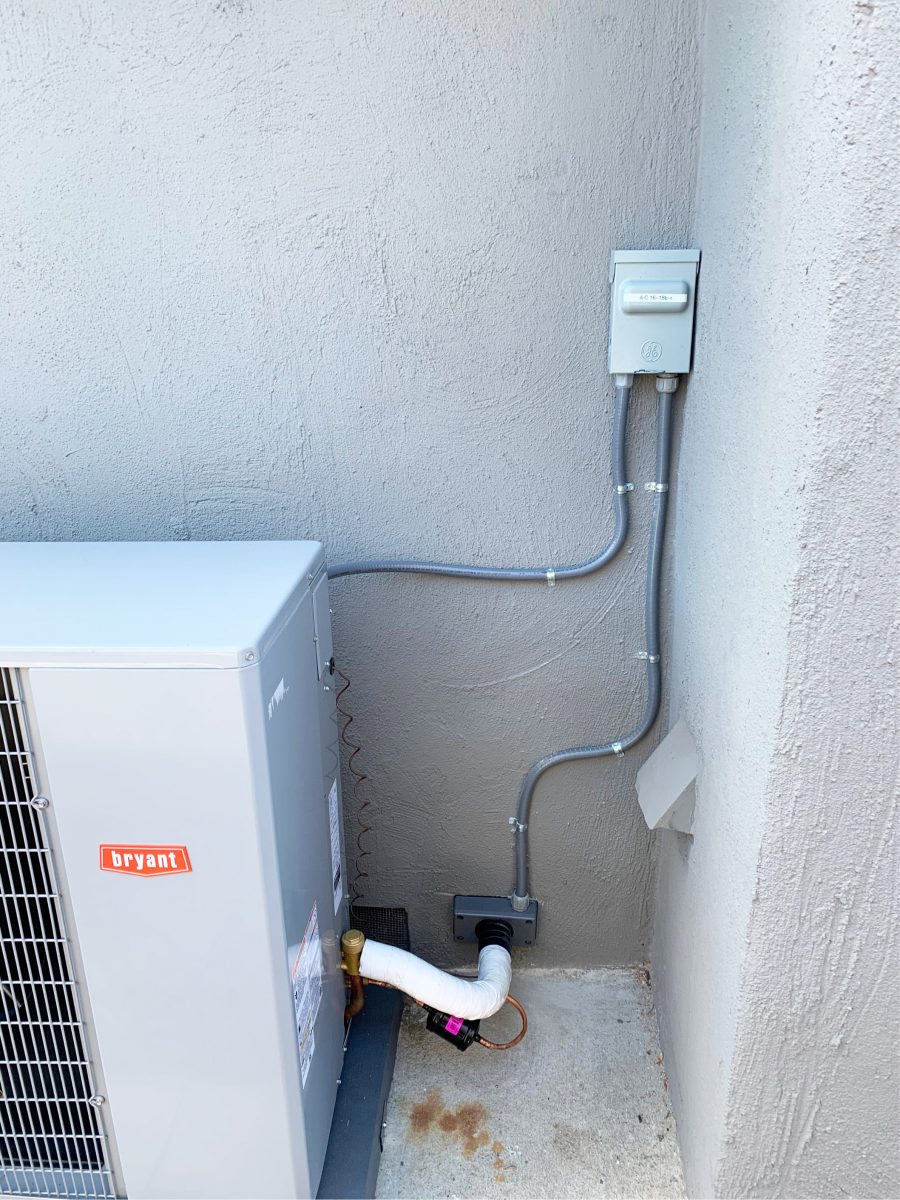
There is a booming demand for electricians and the government is looking to train future electricians. The government has created a program to meet this demand. High-demand electricians are expected to be in high demand by 2021. This will help keep salaries high.
The job outlook for electricians
You will be an electrician and specialize in wiring buildings, transmission lines, stationary equipment, and other electrical devices. Additionally, you'll be responsible for installing new equipment and maintaining existing electrical infrastructure. As such, you may have a wide variety of job opportunities.
Electricians are needed because of the increasing demand for electricity. The United States Bureau of Labor Statistics projects a 11% rise in the demand for electricians over the next 8 years. This is a significant increase and will result in more electricians being employed by 2024. This is due to increased demand for wiring homes and commercial buildings.

Career opportunities
The lucrative and rapidly growing industry of electricians is rewarding. It is also expected that the demand for skilled tradespeople won't slow down in the near future. There are many paths to the dream job as an electrician. These include certifications, apprenticeships, and specializations. These specialties offer high pay, perks, and career growth and advancement.
Installers of electrical equipment work in industrial, commercial and residential construction. They learn how to read blueprints as well as provide cost estimates and troubleshoot wiring. After passing a certificate program, journeyman electricians can apply for apprenticeships and move on to higher positions. Apprenticeships usually last for 4-5 years. Some employers will accept credit from associate degrees.
To become an electrician, you will need to have the following requirements
A few prerequisites are required if you plan to become an electrical engineer. A majority of states require that high school students have completed at least one semester of algebra. Additionally, you need to have a good understanding of physics and physical science, since these are necessary to be an electrician. You should be able to begin your apprenticeship in this field if you have these qualifications.
Apprenticeships. In order to become a professional electrician, you must complete a four- or five-year apprenticeship. During this time, you will be exposed to all aspects and gain valuable experience. You'll need to pass the National Electrical Code written exam during this training. Eventually, you'll be a licensed electrician and be able to manage your own electrical projects.

For electricians, the salary range is
The salaries for electricians can vary across the United States. In general, the lowest paying electricians live in rural areas and the highest paid live in metropolitan areas. This can create problems for owners of electrical businesses who might find it difficult to hire qualified staff or worry about their employees moving to other areas to make more money.
The salary for electricians can vary depending on experience and where you live. In St. Albans, Vermont for example, an electrician earns $63,768 per the year. Some areas have salaries that can exceed $71,031 It is essential to get several estimates before you hire an electrical contractor. The quotes should cover the cost of materials and labor and be backed up by a contract.
FAQ
Where can I get more information on building permits?
You can contact your local government authority, such as the NSW Local Government Association, or your local realty agent. They will be able to tell you what steps you should take to obtain building permits.
What happens if one of the parties doesn't accept their side?
If you fail your end of the bargain, the law permits the other side to treat your promise as void and sue for damages. Damages can include interest, court costs and legal fees as well as the amount due.
Can I cancel or terminate my contract at any time?
Yes, but you must do it within 14 days after signing the contract. You may usually cancel your contract by writing notice at least seven working days prior to the date in your contract. But, you could still owe the contractor money if you give too little notice.
Statistics
- While we offer all our high-quality services at competitive prices, we know that many who need our services are on fixed incomes, so we offer a 10 percent discount for seniors and military members. (homeservicecontractorsinc.com)
- (ii) Name, address, and telephone number of each proposed first-tier subcontractor with a proposed subcontract estimated at $10 million or more. (acquisition.gov)
- (1) Except as provided in paragraphs (a)(4) and (a)(8) of this section, if the estimated amount of the contract or subcontract is $10 million or more, the contracting officer shall request clearance from the appropriate OFCCP regional office before- (acquisition.gov)
- Don't take their anger personally, they are mad about the situation 99% of the time. (activatemylicense.com)
- Depending on the client's trustworthiness and financial stability, a deposit is usually 10 to 50% of the total contract amount. (lawdepot.com)
External Links
How To
What should a service contract include?
An SA is a key component of any business relationship. It sets out what you expect from one another and how you intend to achieve these expectations. The SA also describes when and how you expect the other side to meet its contractual obligations.
The key elements of a successful SA are:
-
The scope of both the work and the services required.
-
Details about the payment terms.
-
An agreed price for the project.
-
Additional costs, such as VAT, etc.
-
Discuss any other matters.
-
Who will be responsible if something goes wrong with the job?
-
How to resolve disputes
-
What happens to a contract breached by one party?
-
What happens in case of dispute.
-
When does the contract go into effect?
-
What happens if a party doesn't perform.
-
How long do you have to pay invoices?
-
Who pays for travel expenses?
-
Where the money came from.
-
What happens if the client decides to change his mind about the project.
-
What happens if the supplier doesn't turn up.
-
Who has access during construction to the site?
-
What happens when the customer cancels a project?
-
What happens if the product is faulty.
-
What happens when the manufacturer refuses supply?
-
What happens if the equipment breaks down.
-
What happens if the project takes longer than expected.
-
What happens if the work isn't completed within the agreed timescale?
-
What happens to the project if it isn't up-to-standard?
-
What happens to the cost overruns?
-
What happens when the materials are not delivered in time?
-
What happens when the material arrives damaged.
-
What happens if the products aren't up to standard?
-
What happens if the job gets cancelled before it is completed?
-
What happens when the company goes under?